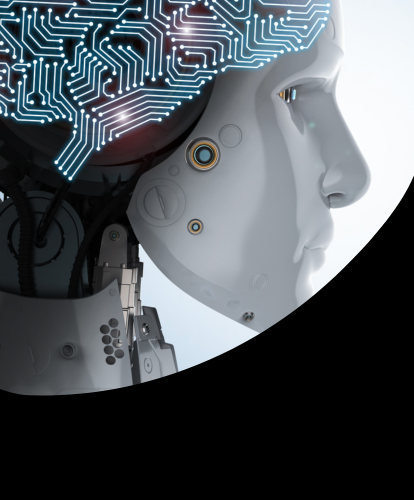

Artificial Intelligence (AI) has been revolutionizing the healthcare industry, transforming the way medical professionals diagnose, treat, and manage diseases. With each passing year, AI continues to advance, bringing forth new possibilities and trends that have the potential to reshape healthcare in 2023 and beyond. In this article, we will explore some of the exciting upcoming trends in AI in healthcare for 2023.
AI has emerged as a powerful tool in healthcare, assisting medical professionals in making accurate diagnoses, predicting patient outcomes, and providing personalized treatment options. As we enter 2023, the impact of AI in healthcare is expected to intensify, with several new trends poised to shape the industry.
Precision medicine, also known as personalized medicine, aims to deliver tailored healthcare solutions based on an individual's unique genetic makeup, lifestyle, and environmental factors. AI algorithms can analyze vast amounts of genomic data and medical records to identify patterns and make personalized treatment recommendations. In 2023, we can expect to see increased adoption of AI-driven precision medicine, leading to more effective and targeted therapies.
AI has the potential to enhance diagnostic accuracy and speed by leveraging machine learning algorithms. Advanced AI models can analyze medical images, such as X-rays, CT scans, and MRIs, to detect abnormalities and assist radiologists in making more precise diagnoses. In 2023, we can anticipate the integration of AI-powered diagnostic tools into clinical practice, improving diagnostic efficiency and reducing errors.
Medical imaging plays a crucial role in diagnosing and monitoring various medical conditions. AI can optimize medical imaging workflows by automating image analysis, detecting anomalies, and providing quantitative measurements. The use of AI in medical imaging will continue to expand in 2023, enabling healthcare providers to make faster and more accurate interpretations of imaging data.
Robotic systems powered by AI algorithms have shown great promise in performing complex surgeries with precision and minimal invasiveness. In 2023, we can expect advancements in AI-enabled robotics, enabling surgeons to carry out intricate procedures with greater dexterity and efficiency. Robotic assistance in surgical settings can lead to improved patient outcomes and reduced recovery times.
Clinical documentation is a time-consuming task for healthcare professionals, often taking away valuable time that could be spent on patient care. AI-powered natural language processing (NLP) techniques can automate clinical documentation, transcribing and analyzing physician-patient interactions. In 2023, the integration of NLP into healthcare systems will streamline documentation processes, freeing up more time for healthcare providers to focus on delivering quality care.
Virtual healthcare assistants, powered by AI and natural language processing, can provide personalized support and guidance to patients. These assistants can answer common medical questions, schedule appointments, and even monitor patient health remotely. In 2023, virtual healthcare assistants will become more sophisticated, enabling patients to access healthcare services conveniently and receive timely assistance.
With the increased use of AI in healthcare, ensuring the security and privacy of patient data becomes paramount. In 2023, there will be a greater emphasis on developing robust cybersecurity measures to safeguard patient information. AI algorithms will be utilized to detect and mitigate potential security breaches, ensuring that patient data remains confidential and protected.
Augmented reality and virtual reality technologies have the potential to revolutionize medical training, patient education, and therapy. In 2023, we can expect to see more applications of AR and VR in healthcare, allowing medical professionals to simulate complex procedures, enhance patient engagement, and improve treatment outcomes.
The process of discovering and developing new drugs is time-consuming and costly. AI can expedite this process by analyzing vast amounts of biomedical data, identifying potential drug targets, and predicting drug efficacy. In 2023, AI will play an increasingly significant role in drug discovery, accelerating the development of innovative therapies and personalized medicine.
Telemedicine and remote patient monitoring have gained significant momentum in recent years, allowing patients to receive healthcare services from the comfort of their homes. AI will further enhance these remote care models by analyzing patient-generated data, detecting early warning signs, and facilitating timely interventions. In 2023, telemedicine and remote patient monitoring will become even more integrated with AI technologies, extending access to quality healthcare services worldwide.
As AI continues to advance in healthcare, ethical considerations must be at the forefront of adoption. Issues such as data privacy, algorithm bias, and accountability need to be addressed to ensure the responsible and equitable use of AI technologies. In 2023, there will be an increased focus on establishing ethical frameworks and guidelines to guide the integration of AI in healthcare.
While the potential of AI in healthcare is immense, there are challenges that need to be addressed for successful implementation. These challenges include data interoperability, regulatory frameworks, and resistance to change. In 2023, efforts will be made to overcome these barriers through collaborations between technology developers, healthcare providers, and policymakers.
The successful integration of AI in healthcare requires collaboration between AI experts and healthcare professionals. Interdisciplinary partnerships will drive innovation and ensure that AI technologies are aligned with the needs and values of healthcare providers and patients. In 2023, we can anticipate increased collaborations and knowledge exchange between the AI and healthcare communities.
The year 2023 holds tremendous potential for AI in healthcare. From precision medicine and AI-powered diagnostics to robotic assistance and virtual healthcare assistants, the upcoming trends in AI will revolutionize patient care, enhance medical outcomes, and improve operational efficiency. However, it is crucial to address ethical considerations, overcome challenges, and foster collaborations to unlock the full potential of AI in healthcare.
1. What are the benefits of AI in healthcare?
AI in healthcare offers numerous benefits, including improved diagnostic accuracy, personalized treatment options, streamlined workflows, and enhanced patient care experiences.
2. How will AI impact medical imaging?
AI can optimize medical imaging by automating image analysis, detecting abnormalities, and assisting radiologists in making more accurate diagnoses, leading to faster and more efficient interpretations of imaging data.
3. Will AI replace healthcare professionals?
AI is designed to augment and assist healthcare professionals rather than replace them. It can support decision-making, automate tasks, and improve efficiency, allowing healthcare professionals to focus on delivering quality care.
4. What are the privacy concerns related to AI in healthcare?
Privacy concerns in AI healthcare revolve around the security and confidentiality of patient data. Robust cybersecurity measures and ethical data handling practices are essential to ensure patient privacy.
5. How can AI improve drug discovery?
AI can accelerate drug discovery by analyzing vast amounts of biomedical data, identifying potential drug targets, and predicting drug efficacy. It enables researchers to explore a broader range of possibilities, leading to faster and more effective development of new therapies.